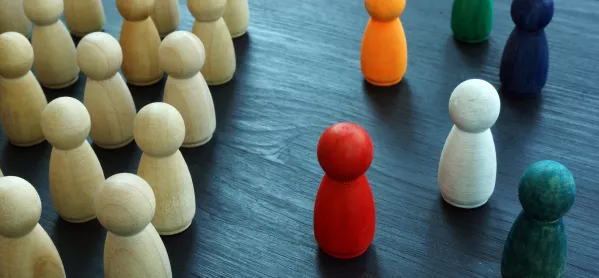How to help students tackle prejudice post-Covid

In the era of fake news and targeted news stories, ads and posts, sometimes it is hard to see through the fog into the clear light of day. Even as an adult, I cannot always tell the difference and find myself checking news stories over multiple media outlets to make sure I am getting the complete picture. Nevertheless, this is not a skill we are born with, and, as we get older, we naturally get more sceptical. Unfortunately, our teenage students are not as adept at seeking out “truth”, let alone having the ability to evaluate this “truth” against their reality critically. As race-related attacks in the UK against those of Asian descent rise, it has become clear to me that the digital rumour mill has been working overtime.
As the future wife of a British-born man of Chinese descent, I have been privileged to enjoy the rich Chinese culture and traditions. However, as the pandemic took hold, strange things started to happen, small at first but becoming more noticeable as the pandemic progressed. When my partner and I would stop at our local supermarket, people would give us strange looks and practically fall over themselves to get away from us. Muttered comments followed us whereever we went.
But this was not an isolated incident; in fact, the advocacy group Stop AAPI Hate has stated that it “received more than 2,800 reports of hate incidents directed at Asian Americans and Pacific Islanders nationwide last year”. The group set up its online self-reporting tool at the start of the pandemic. So, it is unfortunate but expected that we would start to see these issues playing out in the miniverse of the classroom.
Background: Anti-racism toolkit launched by leadership group
More: Why spotting fake news should be in the curriculum
Tes magazine: What FE colleges can do to improve diversity
For me, the issue came to a head whilst conducting a classroom debate - practice for the students’ speaking and listening exams - on animal rights. Unfortunately, my very politically correct debate was soon hijacked by the pandemic, and students abruptly moved the conversation on from animals to the treatment of animals in the Chinese wet markets, and then to “are the Chinese responsible for the pandemic?”. At first, I was highly apprehensive about broaching the subject. I sat there listening to the students, poised to shut the conversation down at the earliest opportunity. Yet, in that moment, I had to ask myself, why was I so uncomfortable? Race is such a complicated and challenging topic, but that does not mean we should simply ignore it.
Covid: Prejudice against people of Asian descent
Instead, I turned the discussion into a collaborative lesson on bias and research skills. First, I brought up the news story that many students had made notes from for their debate. As the first link to come up on Google that day, it was clear why so many students had chosen it. I then asked the students to use their phones to find two other media sites that spoke about the same story but in different ways. I waited patiently whilst holding my breath.
The response from the students was priceless. They could not understand why the same news article was presented so differently, and it had never occurred to them that the news stories that pop up on social media may have their own agendas. The response from the students was overwhelmingly positive. This made me feel more comfortable sharing my own experiences of racial discrimination since the start of the pandemic. Just being open with my students meant that they could express, challenge and reflect on the things they had read and been told over the past year.
In reflection, this was not an easy discussion to have, and I must say I did not relish the chance to discuss such a sensitive and challenging subject, but I am glad I did. Context is so important for our students’ understanding of the world around them and their place in it. Maybe, just maybe, next time a news article pops up on their social media feed, they will take the time to question it.
Jennifer Wilkinson is a functional skills English lecturer at a college in England
You need a Tes subscription to read this article
Subscribe now to read this article and get other subscriber-only content:
- Unlimited access to all Tes magazine content
- Exclusive subscriber-only stories
- Award-winning email newsletters
Already a subscriber? Log in
You need a subscription to read this article
Subscribe now to read this article and get other subscriber-only content, including:
- Unlimited access to all Tes magazine content
- Exclusive subscriber-only stories
- Award-winning email newsletters